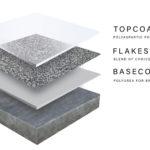Looking for a durable yet attractive floor coating for your home or business? Polyurea may be the perfect option! This type of flooring is highly versatile and can be used in various settings, from industrial warehouses to residential kitchens.
But there are a few things that you should know before considering polyurea floor coating for your home or your business:
Different Types of Polyurea Floor Coatings Available
When choosing the right floor coating for your needs, many types of polyurea floor coatings are available on the market. This can make it challenging to decide which one is right for you.
1. Water-Based Polyurea Floor Coatings
These types of coatings are made with water-based polyurethane and offer a variety of benefits. They are easy to apply, have low VOCs, and are eco-friendly. They are also very durable and can withstand heavy traffic.
2. Solvent-Based Polyurea Floor Coatings
These coatings are made with solvent-based polyurethane and offer a variety of benefits. They are more durable than water-based coatings, have high VOCs, and can be applied in colder temperatures.
3. Epoxy Floor Coatings
These coatings are made with epoxy resin and offer a variety of benefits. They are very durable and have low VOCs.
The Benefits of Polyurea Floor Coatings
Polyurea floor coatings are commercial flooring that offers many benefits over traditional flooring options. These are highly durable and resist wear and tear, making them ideal for high-traffic areas. They are also waterproof and chemical resistant, making them easy to clean and maintain.
In addition, polyurea coatings can be applied in various colors and textures to create a unique look for your business.
The Drawbacks of Polyurea Floor Coatings
Polyurea floor coatings are floor coatings made from a mixture of two liquids that react together to form a solid. This type of coating is typically used in industrial and commercial settings as it is very durable and resistant to chemicals, abrasion, and impact. However, there are some drawbacks to using polyurea floor coatings.
One drawback of polyurea floor coatings is that they can be challenging to apply evenly. If the layer is not spread evenly, it can lead to uneven wear and tear, which can shorten the lifespan of the coating.
Additionally, polyurea floor coatings can be susceptible to delamination if not correctly cared for. Delamination is when the coating layers begin to separate, which can cause the coating to peel or flake off.
Another drawback of polyurea floor coatings is that they can be somewhat expensive. The cost of the materials and the labor required to apply the coating can add up quickly. However, the durability and resistance of the coating usually make it worth the investment.
How to Prepare Your Surface for Polyurea Floor Coating
There are a few things you need to do to prepare your surface for a polyurea floor coating. First, you must ensure that the surface is clean and free of any dirt, grease, or other contaminants. You can do this by power washing the surface or using a degreaser.
Next, you need to roughen up the surface, so the coating has something to grip onto. You can do this by sanding or etching the surface.
Once the surface is clean and prepped, you can apply the polyurea coating. This should be done in a well-ventilated area with protective gear, such as gloves and a respirator.
Conclusion
There are many reasons to choose polyurea floor coating for your home or business. It is a durable, long-lasting, and easy-to-clean material that will keep your floors looking great for years to come. Additionally, it is an environmentally friendly option that is safe for your family and the environment.
If you are looking for reliable concrete floor coating contractors in Michigan, trust only MotorCity Floors and Coatings. We offer high-quality concrete coatings for residential, commercial, or industrial applications. Contact us today to get a quote!





